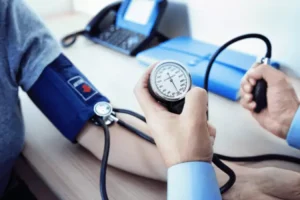
Trying to detox from alcohol on your own, or trying to quit “cold turkey,” can be very dangerous. Alcohol withdrawal syndrome can be life-threatening if your blood pressure and heart rate are not managed during the detox process. If friends, family and other loved ones have commented on your shakes or tremors, or expressed concern about your use of alcohol, it may be time to consider getting help. You are more likely to have DTs if you have moderate or severe alcohol use disorder (heavy or frequent alcohol use even if it causes physical or emotional harm). Nearly one-third of U.S. adults will have alcohol use disorder at some point in their alcoholic shakes lives, and it is estimated that about 1% of those people may get delirium tremens. If untreated, delirium tremens can cause severe symptoms including heart attack, stroke, and death.
- The body may also eliminate substances through sweat, urine, and breath.
- Blood and urine tests check for alcohol levels, liver function, and nutritional deficiencies.
- If alcohol shakes have become a regular occurrence, you may find that your work, family time, and social life are affected—especially if other symptoms are involved.
- However, alcohol shakes are often the first sign that a more serious problem exists.
- Her role is to help our clients develop and improve their physical and mental health well-being.
- Your body responds to the side effects of alcohol by increasing activity in the central nervous system.
Medications to Ease Withdrawal Symptoms

Reach out to learn more about the various aspects of our residential treatment program and understand the importance of this modality in promoting lasting recovery and a brighter future. This can lead to short and long-term complications for your physical and mental health. With appropriate treatment, support, and lifestyle changes, many individuals can successfully overcome alcoholism, manage alcoholic shakes, and lead fulfilling lives in recovery. In this context, the term is usually used to describe what addicts experience when they cease using their drug of choice. For many addicts and alcoholics, withdrawal has both physiological and psychological manifestations. In fact, the process of withdrawing from certain drugs, even alcohol, can be fatal.
Alcohol Tremors Explained (Alcohol Shakes & What They Mean)

These tremors typically manifest as uncontrollable shaking of the hands, limbs, or other parts of the body. If you notice signs of alcohol withdrawal, you may need the support of an alcohol addiction treatment program to detox safely. If you drink a lot, your body keeps your CNS activity at a heightened state. If you suddenly stop drinking, you may experience symptoms of alcohol withdrawal. Preventing alcoholic withdrawal symptoms necessarily involves preventing alcoholism itself. That is, if the alcoholic is drinking to excess on a daily basis, they might try to taper off.
- Tim is an experienced and talented administrator and director of mental health and addiction treatment facilities.
- Tremors and other symptoms of alcohol withdrawal can occur as soon as six hours after someone last had a drink.
- These hangover shakes, also known as alcohol tremors, typically manifest in various parts of the body such as the hands, fingers, arms, eyes, head, and voice.
- Alcohol shakes, which are technically called tremors, are a type of involuntary shaking that affects different parts of the body.
- We maintain strict accuracy standards, sourcing information exclusively from credible sources for our website content.
Causes of Alcohol Shakes and Tremors

People with alcohol use disorder should be monitored by a medical professional when withdrawing from alcohol. Moderate to heavy drinkers can also benefit from medical supervision in the acute withdrawal stage. When someone drinks alcohol for a prolonged period of time and then stops, the body reacts to its absence. This is alcohol withdrawal, and it causes uncomfortable physical and emotional symptoms.
- Adopting a healthy lifestyle, including regular exercise, balanced nutrition, and stress management, supports long-term recovery.
- He or she can guide you toward the safest, most comfortable, and most effective plan for your sobriety.
- Alcohol shakes, or tremors, occur when a long-term or heavy drinker stops consuming alcohol.
It’s essential to seek medical attention to ensure the issue is unrelated to DTs. A graduate of Middle Tennessee State University, Demarco Moore currently writes blogs about drug addiction treatment and recovery to help save lives at treatment provider Landmark Recovery. Before that, he cut his teeth as a sports writer at the Manchester Times, where his coverage and stories won Tennessee Press Association awards in 2016 and 2017.

Not drinking breaks the cycle of consuming and withdrawing from alcohol. The frequency and intensity of your tremors can depend on the severity of your alcohol drinking. If you are experiencing alcohol withdrawal, seek medical attention immediately, especially if you’ve been drinking heavily for a long time. Tremors are caused by a problem in the areas of the brain that control the body’s muscles.
However, it could be the second stage of treatment for someone who has completed alcohol detox at an inpatient rehab facility or a controlled residential environment like a halfway house or recovery facility. During outpatient treatment, patients meet medical treatment providers for a few hours at a time, usually around two to three times a week. Inpatient treatment is suitable for those who once attended an inpatient or outpatient program but need continuing medical attention to achieve long-term sobriety. Once detox is complete, most people will need further help to maintain abstinence long-term. This can come in the form of treatments like therapy or support groups. For mild or moderate drinkers, alcohol slows brain activity and lessens energy levels.


